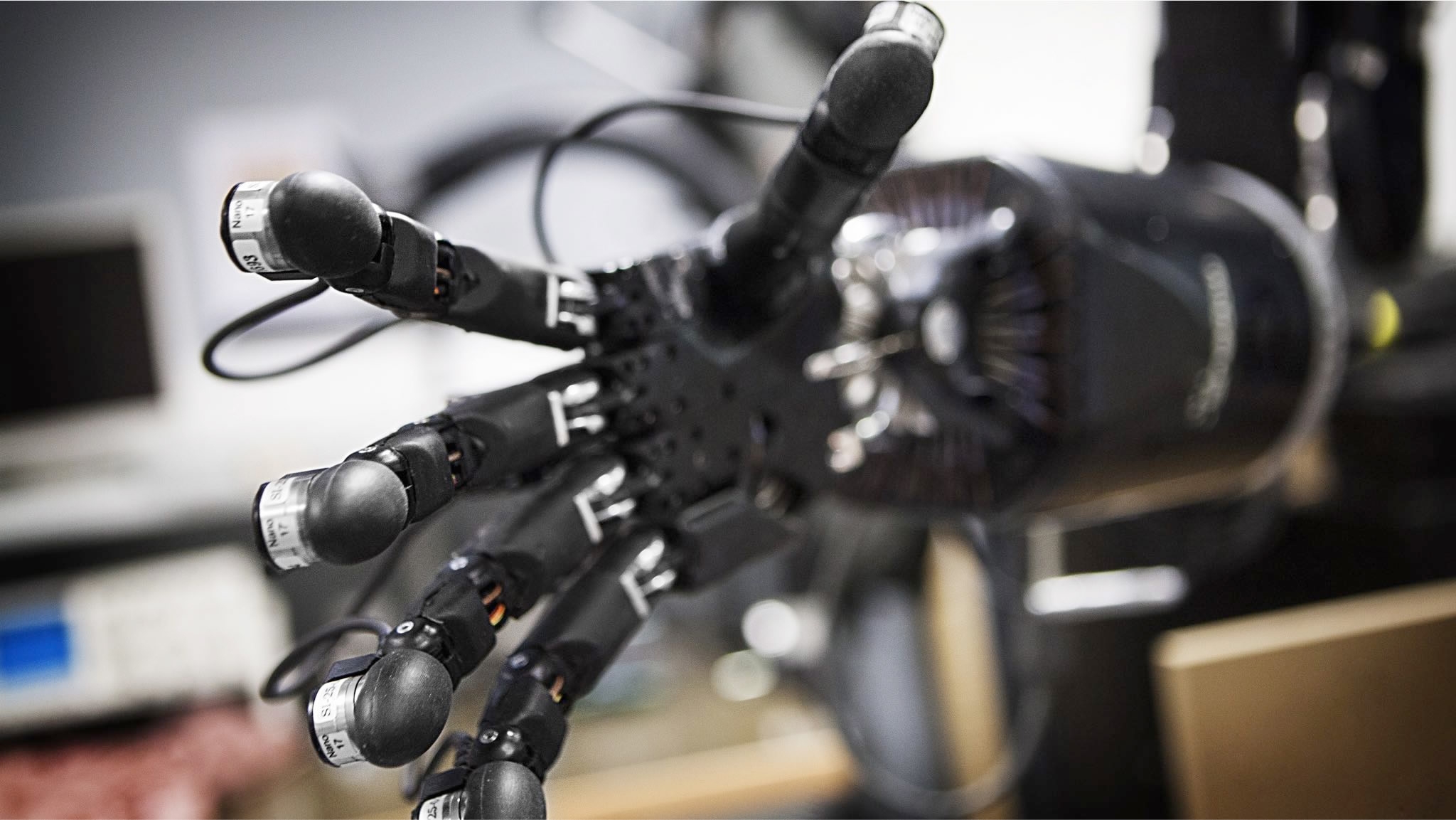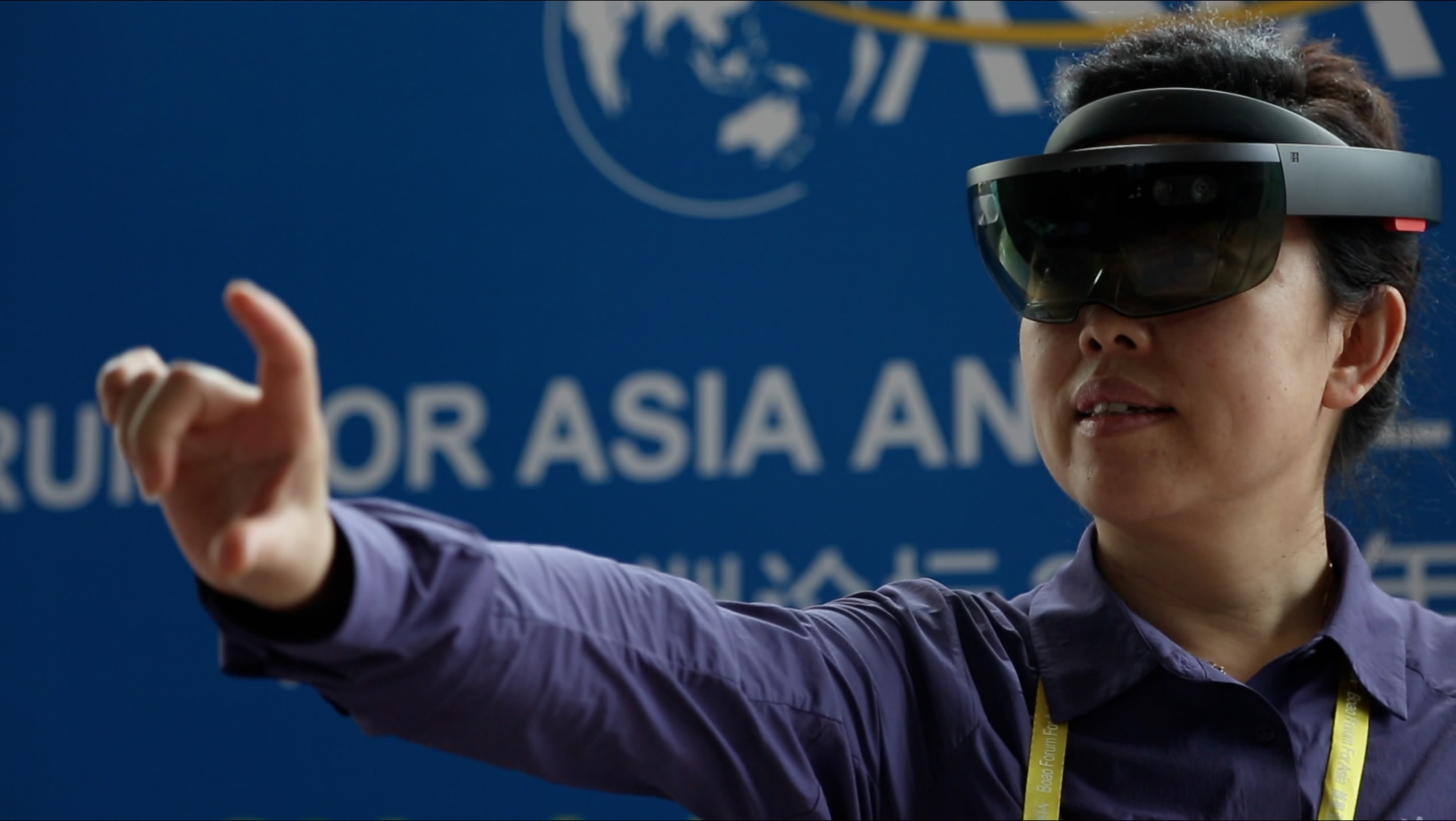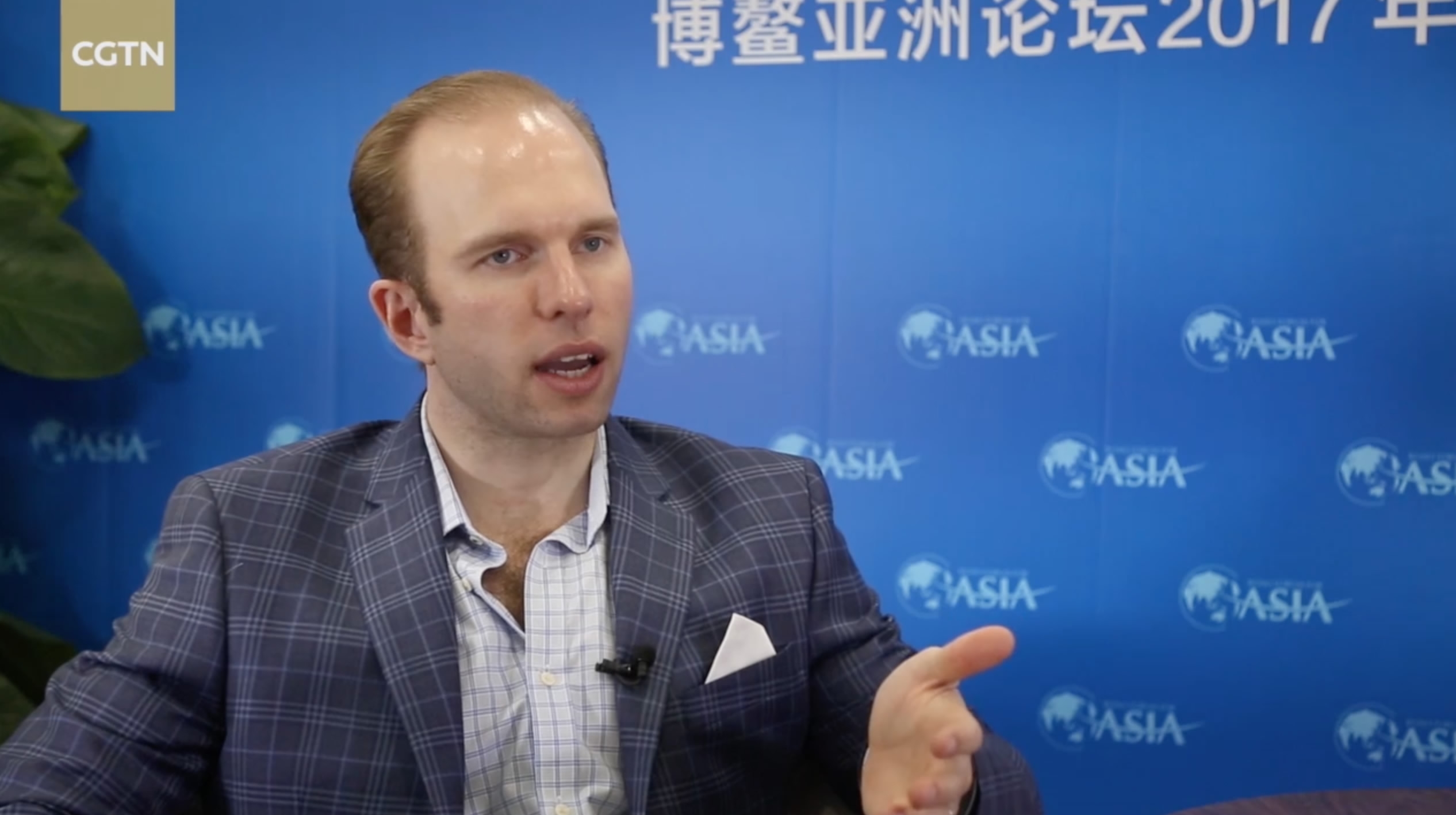
Business
21:46, 24-Mar-2017
Views from Boao: How attractive is China to a US venture capitalist?
Updated
11:08, 28-Jun-2018

By CGTN's Chen Chen and Lester Xu
New economy and high-end technology: these are key concepts for China’s entrepreneurs and politicians, as the country pushes innovation to the forefront of its economic development.
Artificial Intelligence (AI) is featured in Premier Li Keqiang's government work report for the first time this year, and Internet giant Baidu Inc. has placed a big bet on the technology. The Internet giant’s CFO Jennifer Li wants her company to “lead the AI wave in China”, and is positioning it at the center of its business model.
AI is creating a buzz in China, but are overseas investors excited by the country’s tech sector?

VCG Photo
VCG Photo
Logan Allin, partner at Formation Group, a venture capital firm that invests throughout Asia and the US, spoke exclusively to CGTN during the Boao Forum for Asia about the opportunities in China that he is keeping an eye on.

Logan Allin at the Boao Forum for Asia. /CGTN Photo
Logan Allin at the Boao Forum for Asia. /CGTN Photo
He thinks China’s AI sector holds real potential, even though only a handful of companies in the country focus solely on the sector.
Allin’s thinking is echoed by investors such as Lee Kai-fu, CEO of Sinovation Ventures. Lee said during this year’s World Economic Forum Annual Meeting that he believes artificial intelligence represents the greatest opportunity in human history.

A panel on innovation during the Boao Forum for Asia. /CGTN Photo
A panel on innovation during the Boao Forum for Asia. /CGTN Photo
According to a report by CB Insights, a venture capital database, there are only four companies that focus purely on AI in China, while there are 89 based in the US.
Innovation is at the heart of Allin’s targets. Autonomous driving is an attractive area for his company, particularly given the machine-learning and AI that are central to a self-driving car’s software.

CGTN Photo
CGTN Photo
China aims to have highly or fully autonomous vehicles on sale as early as 2021, according to a government blueprint released last year. This is an area investors are watching closely.
Allin added that frontier technologies, such as AR (Augmented Reality) and VR (Virtual Reality), are also catching the eye of the American investor. “Applications for consumers, how they consume for media, and how they consume for live events and streaming, but also for businesses,” he explained.

CGTN Photo
CGTN Photo
Investor attention has also been drawn by structural changes in China’s manufacturing sector.
“China historically has a lot of heavy industries. Innovation and manufacturing, supply-chain management in particular are interesting, whether that’s robotics or software enablement,” he said.
Mass entrepreneurship and innovation have been focuses of China’s economy since 2015, and during this year’s annual political season, the Two Sessions, Premier Li Keqiang stated that China now has strong vitality in both areas.
Allin said that innovation is the major lure for investors. “Innovation is obviously why we invest. We are investing in innovative companies that are trying to solve big problems and address large markets.”

VCG Photo
VCG Photo
China attracted 813.22 billion yuan (118 billion US dollars) of cross-border investment in 2016, a 4.1 percent increase on the previous year, with funds mainly from the US, Europe, EU, South Korea and Japan.
“We invest in the US and Asia because that is where the bulk of innovation is happening,” said Allin.
Allin, a panellist at the Boao Forum “DNA of innovators” session, also had some top tips on how to be more innovative.

“If we look at the most successful entrepreneurs, they have done a lot of reading and a lot of deep learning,” he said.
He makes sure he reads one book each week, but says that deep learning comes from hands-on experience and application rather than pure academic study.
For entrepreneurs and innovators, learning quickly is the only way to avoid being “outcompeted," he said.
2376km

SITEMAP
Copyright © 2018 CGTN. Beijing ICP prepared NO.16065310-3
Copyright © 2018 CGTN. Beijing ICP prepared NO.16065310-3